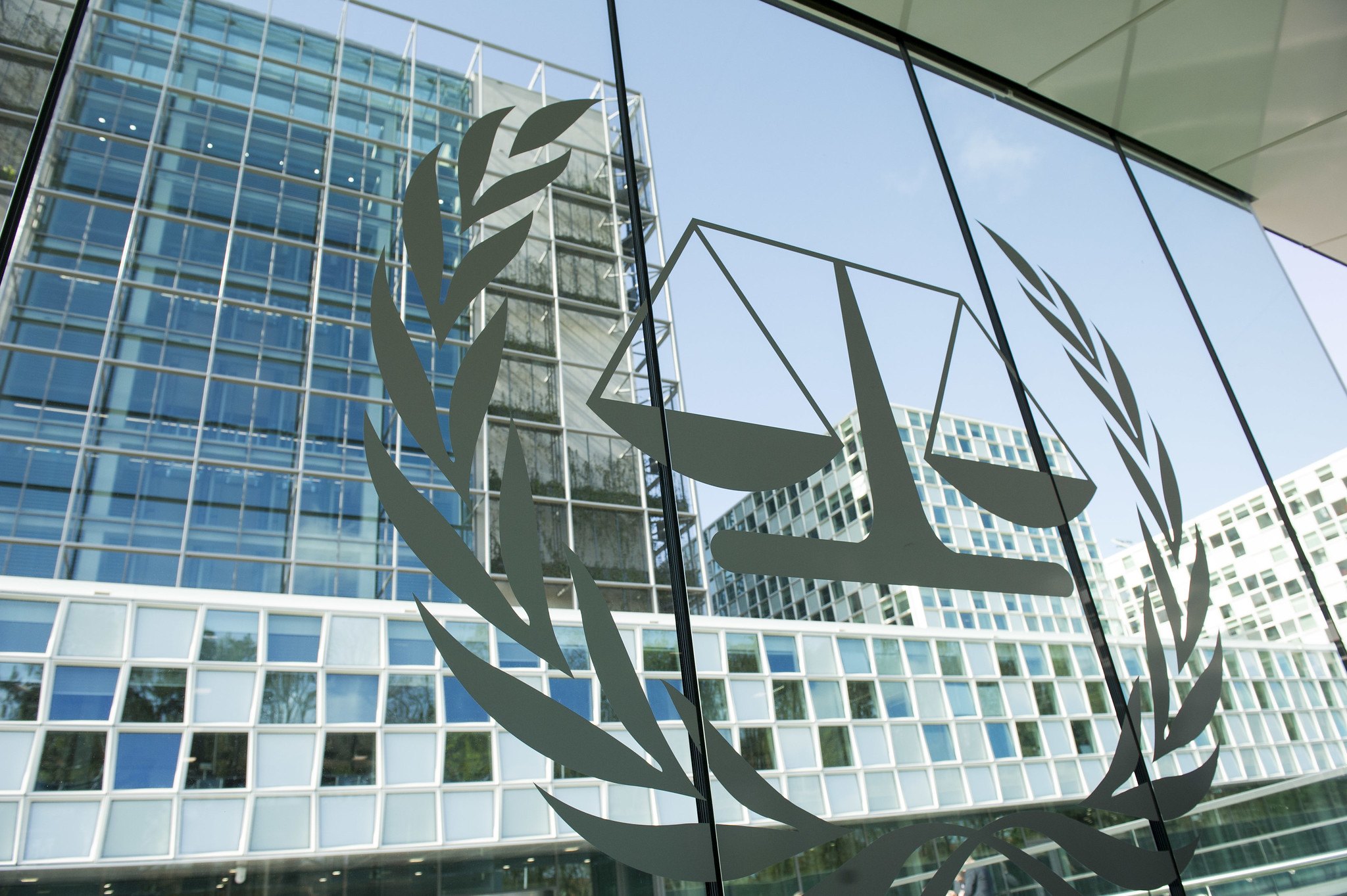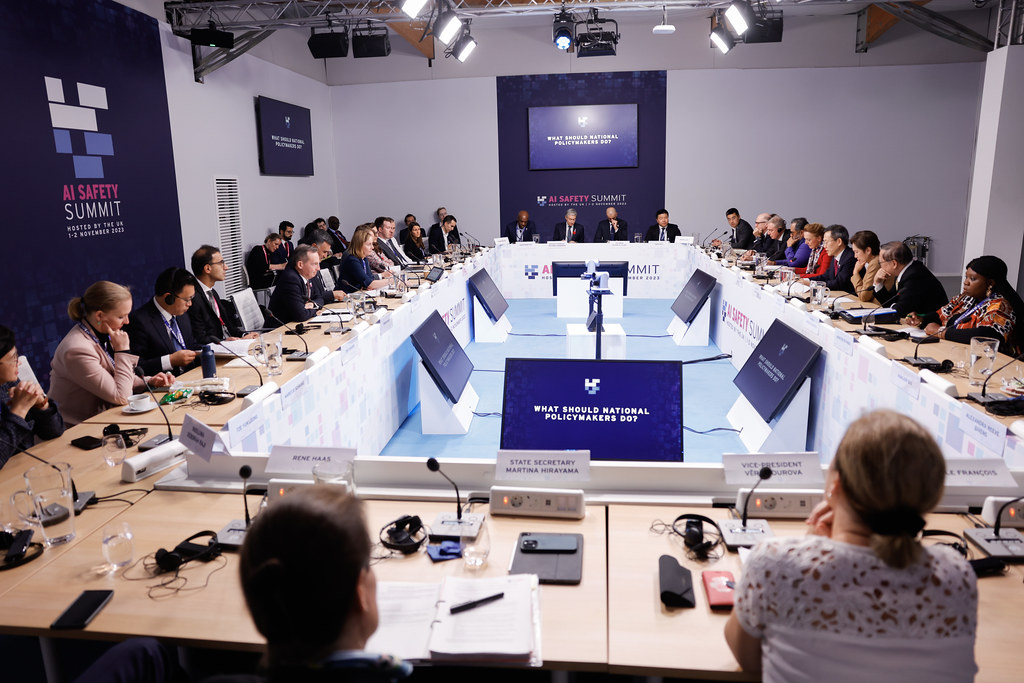Turkey’s Government Wants Silicon Valley to Do Its Dirty Work
The Turkish government is trying to outsource censorship to social media companies. Silicon Valley should not play along.

Published by The Lawfare Institute
in Cooperation With

As civic discussion migrates from the town square to the timeline, the Turkish government is scrambling to assert control over online speech. On Oct. 1, a far-reaching new law restricting internet freedom went into effect in Turkey. The law requires social media companies to appoint local representatives in Turkey and comply with draconian speech-restrive conditions. And what if companies don’t comply? They will face bandwidth squeeze, exorbitant fines and prosecution. The provisions were rushed through the Turkish legislature on July 29 as an amendment to Turkey’s Internet Law, despite overwhelming criticism from human rights groups and free speech advocates.
The raft of new measures from Ankara functionally outsources the dirty business of censoring Turkey’s internet to computer engineers in Silicon Valley. Silicon Valley should not play along.
The amendment requires social media companies whose platforms are accessed more than 1 million times per day in Turkey—this includes Facebook, Instagram, Twitter, YouTube and TikTok, among others—to appoint legal representatives in the country by Nov. 2. The Turkey-based representatives would be responsible for addressing the Turkish government’s frequent content removal requests within just 48 hours—or face stiff fines. What’s more, the law stipulates that the representatives must be Turkish nationals. This is not only an unusual requirement but also one that places the representatives at higher risk of prosecution if they refuse to remove posts flagged by Turkish authorities. The law explicitly notes that if platforms ignore court orders to block content, their Turkish representatives will face judicial fines.
Should companies fail to designate a representative, they face administrative fines, a ban on advertising on their platforms within Turkey, and the reduction of their internet bandwidth by up to 90 percent—effectively blocking access. Russian social media company VKontakte was the only social media platform to appoint a local representative before the deadline. The Turkish government responded by fining Facebook, Twitter, Instagram and TikTok 10 million Turkish lira each (approximately $1.2 million) for noncompliance on Nov. 3, followed by a second set of fines amounting to 40 million Turkish lira (approximately $5 million) each on Dec. 3.
The Turkish government has a long history of clamping down on dissent online, but the amendment marks the launch of a novel and highly streamlined process of censorship and poses an unprecedented threat to freedom of expression in Turkey.
Turkey already had in place expansive criminalizations of online speech. It’s a country where judicial independence has been steadily undermined, and censoring the web has traditionally been a domestic and legalistic affair. Turkish courts have acted on Turkish authorities’ demands to force Turkish network providers to block access to Turkish content on grounds that it violates Turkish law. In 2019 alone, according to the Freedom of Expression Association, providers blocked access to 40,000 tweets, 10,000 YouTube videos, and 6,200 Facebook posts at the behest of courts. The Turkish government also sometimes submits removal requests directly to social media platforms. Twitter reported that it complied with 18 percent of the nearly 9,000 removal requests the Turkish government submitted just in the first half of 2018.
Moreover, the blocking of online content critical of the government and the prosecution of individuals expressing dissenting opinions on social media has increased in recent years under the ruling Justice and Development Party (AKP). Freedom House has marked Turkey as “not free” in its annual “Freedom on the Net” survey every year since 2016. As of 2019, more than 400,000 web addresses were blocked in Turkey, according to the Freedom of Expression Association. In the past, Twitter, YouTube and Wikipedia have been blocked in Turkey because of content shared on their platforms. Wikipedia was blocked for nearly three years over content related to allegations that Turkish authorities collaborated with various armed groups in Syria. The government finally restored access to the site in January 2020 after the Turkish Constitutional Court found the blocking order violated freedom of expression.
Since the onset of the coronavirus pandemic, the government has grown more aggressive in targeting online speech. Under the guise of combating “fake news,” “incitement,” and “spreading fear and panic,” Turkish authorities have used criminal law provisions to target people discussing the pandemic online or criticizing government health policies. Between March 11 and May 21, Turkey’s Interior Ministry accused 1,105 social media users of “disseminating terrorist propaganda,” including by “sharing provocative coronavirus posts.” Of these users, 510 were reportedly detained for questioning.
The existing system of censorship, however entrenched, is hardly efficient. Censoring content through court orders is often a lengthy and bureaucratic process. That means millions of users can access and duplicate “unfavorable” content while Turkish courts deliberate the government’s request. The new social media amendment changes that equation: It places the burden of content removal on social media companies and forces them to respond to requests within hours. This creates a faster, more streamlined, and highly effective censorship mechanism.
In practice, the law broadens the reach of the Turkish government It allows the government to block more content, and faster—without having to justify itself in court. By imposing fines on both companies and their representatives in Turkey, the law significantly increases the Turkish government’s powers to force social media companies to censor content. Previously, social media companies faced no legal repercussions for refusing Turkish requests. The law also imposes short review periods on flagged content, potentially forcing platforms to automatically (or at least aggressively) remove posts reported in Turkey.
The law violates Turkish people’s rights to free expression online, and, if successful, it risks spreading far beyond Turkey’s borders. Germany passed its restrictive NetzDG law in 2017 to address hate speech on the internet. In the months that followed, the governments of Turkey, Russia, Singapore and the Philippines all directly cited the provisions of the NetzDG law to justify their own, harsher legislation to remove “illegal” online content. Turkey’s law could function in a related way: These governments and others could use the law to justify yet more restrictive censorship measures.
The amendment will further squeeze Turkey’s battered civil society, which depends on social media to rally support. Civil society activists and particularly human rights defenders are denied access to the vast majority of Turkish media networks, which are now run by or under the influence of the government and its allies. In this atmosphere, social media—despite existing limitations—is a critical tool for activists to participate in national discourse and draw attention to abuses.
It would be a huge loss for the country if activists couldn’t make use of those tools. Social media campaigns have a decisive role in securing justice for many marginalized communities in Turkey. Take one recent prominent example: Hundreds of thousands of posts with the hashtag #SuleCetIcinAdalet (Justice for Sule Cet) circulated on social media for more than a year after two men raped and murdered Sule Cet in May 2018. In December 2019, public pressure compelled authorities to convict the perpetrators, who were released three times during the trial process. Turkish courts have a notorious track record of releasing, acquitting and handing reduced sentences to men accused of femicide. Online campaigns are the only way for people to hold Turkey’s partisan legal system accountable. Laws that increase government oversight over social media—like the most recent piece of legislation to pass—mean that such calls for justice can easily be censored, denying victims the only opportunity to publicize wrongdoings and seek remedies. In addition, Turkish authorities could feasibly use the new law retroactively to wipe the internet clean of any past documentation of government abuses and corruption.
Increased online censorship will also deprive Turkish people of their only remaining source of reliable, nonpartisan news. Turkey’s independent print and broadcast media have been all but extinguished following years of outlet closures, journalist prosecutions and other forms of intimidation. With most traditional outlets now run by the government or its allies, many stories detrimental to the government are not covered by print and broadcast media. Distrustful of traditional media, or simply looking for coverage of stories ignored by TV and print, Turkish people are increasingly turning to news sites and social media for information: 85 percent of individuals read news online, 71 percent of Turkish people are on YouTube, 67 percent are on Facebook, 66 percent are on Instagram, and 44 percent are on Twitter. Yet just one of these companies, Facebook—which is the owner of Instagram—has announced that it will not be appointing a representative to Turkey as required by the amendment. Twitter and Google—which owns YouTube—have not appointed representatives either, but they have yet to signal how they will respond to the law.
Facebook’s decision is encouraging. But as the law enters into force, it is necessary for all of the affected platforms to make their positions clear. If they choose to appoint Turkish representatives and comply with the invasive measures outlined in the amendment, social media companies risk being complicit in the Turkish government’s crackdown on free expression. Silicon Valley should loudly and unequivocally call on the Turkish government to respect freedom of speech online and rescind this law.
Turkey’s new restrictions come at a time when Silicon Valley is under closer scrutiny than ever in the United States. In October, Facebook’s Mark Zuckerberg, Twitter’s Jack Dorsey and Google’s Sundar Pichai testified in front of a distrustful Senate committee. Lawmakers expressed concerns about tech companies’ power and overreach, as well as their potential influence on the U.S. presidential elections scheduled just days after the hearing. But Silicon Valley’s impact is not limited to the United States. Social media platforms have hugely consequential roles around the world. If Big Tech is committed to protecting free speech, they must support the rights of all users, no matter where they are.
But tech companies should not be the only ones standing up to the Turkish government’s repressive practices. Governments that purport to defend free speech have an obligation to call on the Turkish government to undo these restrictions and halt its frequent requests that social media companies remove content critical of the government and block users. This wouldn’t just be a public relations exercise: Calls from the United States and the European Union would certainly strengthen the hand of companies and civil society groups that publicly oppose the social media amendment. Yet, the U.S. Department of State has not issued a statement directly addressing the law despite many affected platforms being based in the United States.
Turkish authorities are not alone in their efforts to criminalize free speech online. As in Turkey, authorities in China, Hong Kong, Thailand and Indonesia continue to detain and prosecute people for posting criticism of government policies. In Russia, feminist and LGBTI activist Yulia Tsvetkova is facing up to six years in prison for posting body-positive drawings on social media. Egyptian authorities sentenced two women to prison in July over TikToks that “violat[ed] family values.” Tujan al-Bukhaiti, a 17-year-old Yemeni refugee in Jordan, faces jail time over “blasphemous” posts. Failure on behalf of the U.S. and European governments to call the Turkish government out for its abuses on the internet will just embolden other governments that might want to codify their censorship practices with similar social media laws.
As social media companies decide how to deal with the Turkish government’s continued attacks on free speech on their platforms, they should recognize that allowing Turkish authorities to dictate their content moderation policies risks setting a global precedent. If tech companies agree to become an arm of Turkish censorship, other repressive states could feel entitled to the same treatment from the platforms. Likewise, continued silence from the U.S. government and the EU in the face of increased censorship in Turkey will encourage more abuses there and beyond. Governments around the world that are hostile to free speech are watching to see whether the Turkish government will realize its vision of a tightly controlled internet where compliant platforms take down users’ government-critical posts within hours.





